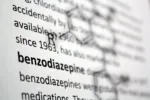What Treatment Promotes Benzodiazepine Addiction Recovery?

Benzodiazepines are classified by the DEA as a Schedule IV drug, meaning they have “a low potential for abuse and low risk of dependence.” This being said, no drug comes without a list of side effects, and even the substances considered “safe” can still pose a risk of dependence and/or addiction if not handled properly.
What are benzodiazepines?
Benzodiazepines are sedative medications most commonly prescribed to treat anxiety, panic disorders, seizures and muscle spasms. They are not considered over-the-counter medications but require prescriptions from a medical doctor in order to be dispensed. The most frequently prescribed benzodiazepines include:
- Valium
- Xanax
- Halcion
- Ativan
- Klonopin
Benzodiazepines work by slowing down the central nervous system and enhancing certain neurotransmitters in the brain to induce a sedative, hypnotic state. They are highly effective in treating particular conditions and are best prescribed over short periods of time to reduce any possibility of dependence.
Once the body is dependent on chemicals such as benzodiazepines, the risk for addiction is greater.
Signs of a benzodiazepine addiction
Whether or not benzodiazepine use develops into addictive behaviors depends on a number of factors. These include:
- Whether or not other substances were abused in conjunction with benzos
- If the individual has a history of addiction
- If any undiagnosed mental health conditions are present
- If there is a history of drug abuse in one’s family
While the presence of some of these factors does not guarantee that a benzodiazepine dependence and/or addiction will develop, it’s helpful to know the risk factors in order to act preventatively.
However, if you suspect a benzodiazepine addiction is developing in your life, or a family member or friend’s life, certain signs can help clue you into whether or not one’s habits are problem-causing.
Signs of benzo addiction include:
- Using the drug for longer periods of time, or in higher, more frequent doses, than what was originally prescribed
- Finding alternative doctors in order to get more of the prescription than needed
- Spending a lot of time obtaining, using or recovering from the use of benzodiazepines
- Developing a tolerance, where your body requires more of the drug in order to feel the same effects
- Experiencing withdrawal symptoms when you attempt to stop using benzodiazepines
If you are concerned about benzodiazepine use in your life or have noticed the presence of certain symptoms, it may be time to consider treatment options to help promote your recovery.
Benzodiazepine addiction treatment
There are numerous ways in which treatment programs seek to build healthy coping mechanisms and foster good lifestyle habits in the people who come seeking treatment. Certain methodologies will work for certain people based on their history, their recovery goals and the length of addiction; but, on the whole, many will find relief from addiction by pursuing one of the following modalities.
Medically assisted detox and treatment
Some individuals suffer greatly from withdrawal symptoms when they stop benzodiazepine use. This is because their bodies have stopped functioning properly on their own and have relied on the chemicals in circulation to do the work for them. When the body is suddenly forced to go back to its natural way of doing things, it can become significantly ill for a period of time.
Medically assisted detox allows the body to rid itself of addictive chemicals in order to prepare a clean slate on which to start the mental healing process of treatment. Using certain FDA-approved medications, individuals can be slowly weaned off benzodiazepines without experiencing severe symptoms of withdrawal.
This approach is taken one step further in medically-assisted treatment (MAT) when the individual remains on a tapering course of medication to help an addicted body slowly return to normal.
Holistic therapies
Once detox has been completed, holistic therapies like yoga, equine therapy and meditation and mindfulness can be utilized to help return the brain to a place of peace and restfulness. Addiction can cause a host of insecurities to arise, including feelings of guilt, shame and worthlessness or hopelessness.
Practicing holistic therapies can help reduce negative self-talk, build self-worth and self-confidence and promote a better sense of self-care overall. This not only benefits you immediately in addiction recovery but continues to benefit you lifelong.
Dual diagnosis treatment
Sometimes addictions develop due to an underlying, unaddressed mental health condition. When this occurs, a dual diagnosis often results where you receive a diagnosis for both an addiction and a co-occurring mental health condition (like anxiety, depression, etc.). In order to properly recover, both conditions need to be addressed simultaneously.
Dual diagnosis treatment does just that, where the benzodiazepine addiction and the co-occurring mental health condition are treated together in order to promote optimal recovery.
Talk therapy
Countless forms of talk therapy exist, including individual, group and family therapy, to help promote recovery and foster strong mental health. Individual therapy, including cognitive behavioral therapy and dialectical behavior therapy, allows you to work through thoughts and emotions one-on-one with a counselor.
Group therapy gives you the opportunity to learn from the experiences and mistakes, successes and perspectives of others during recovery. Family therapy gives you the chance to process the effects of addiction on all members of the family, unpack any family history or trauma that may have triggered addiction and slowly heal as a cohesive whole.
Ready to start benzodiazepine treatment?
If you are seeking treatment for a benzodiazepine addiction, contact us at Silver Ridge Recovery by calling 855-945-7788 to learn more.








